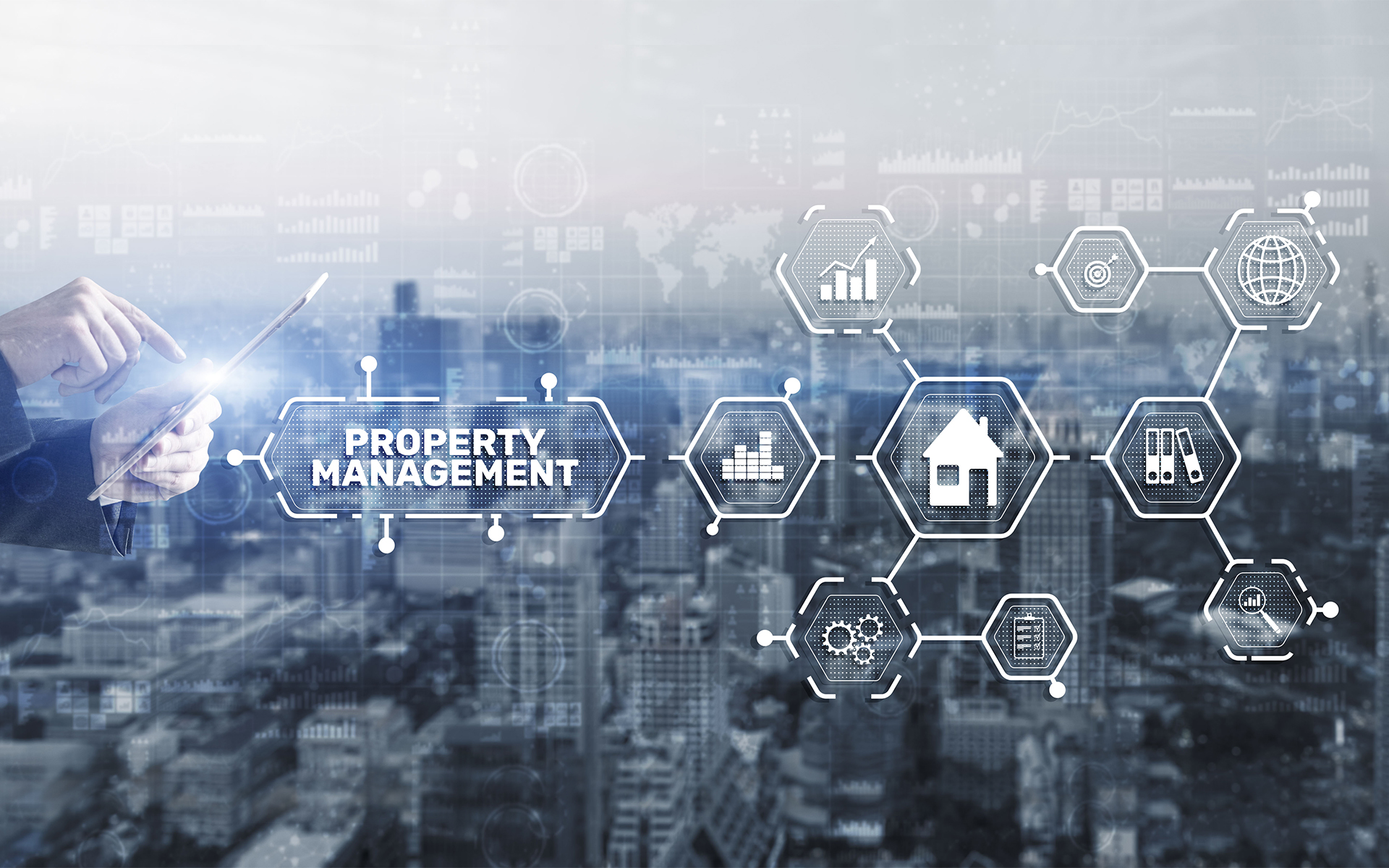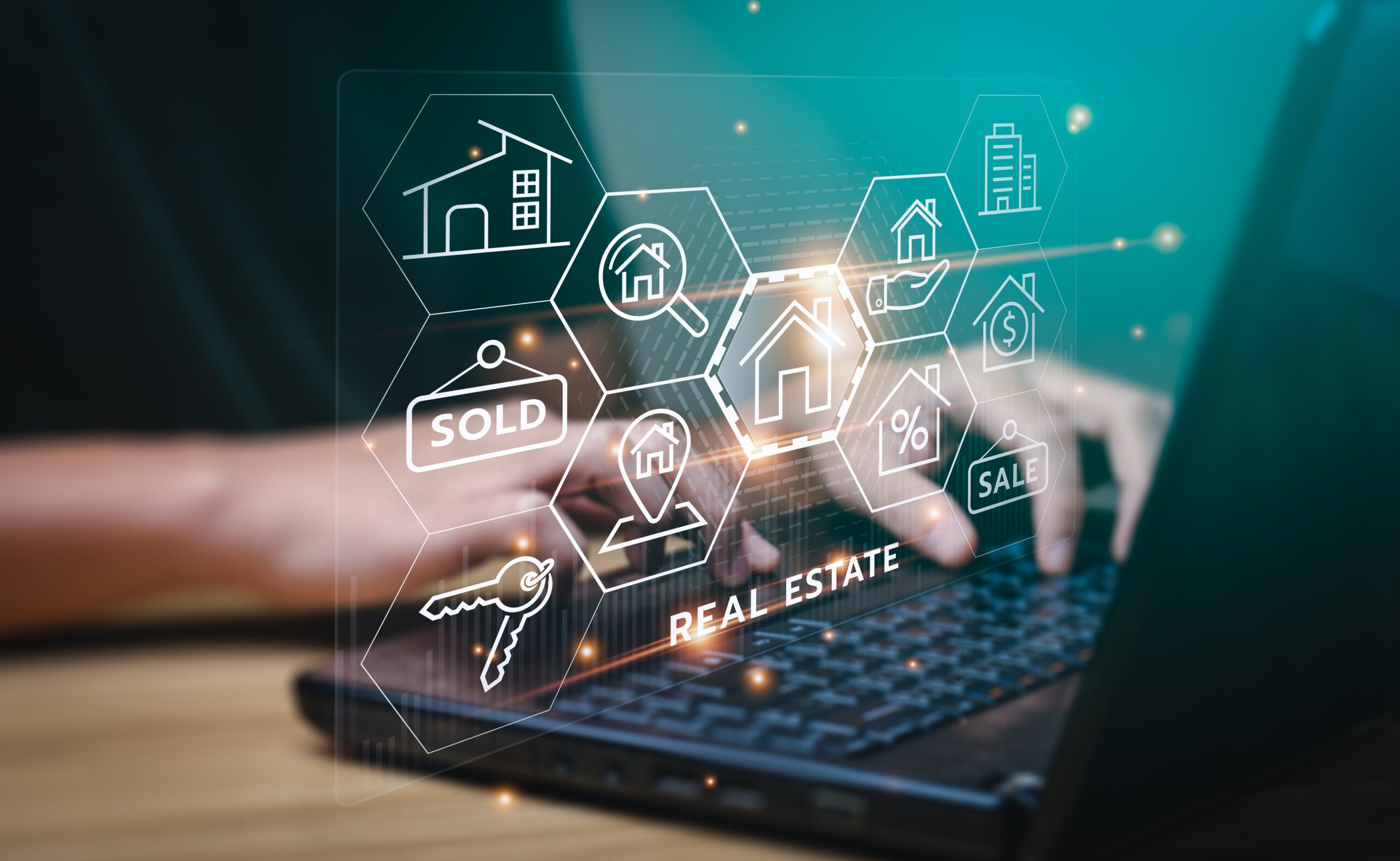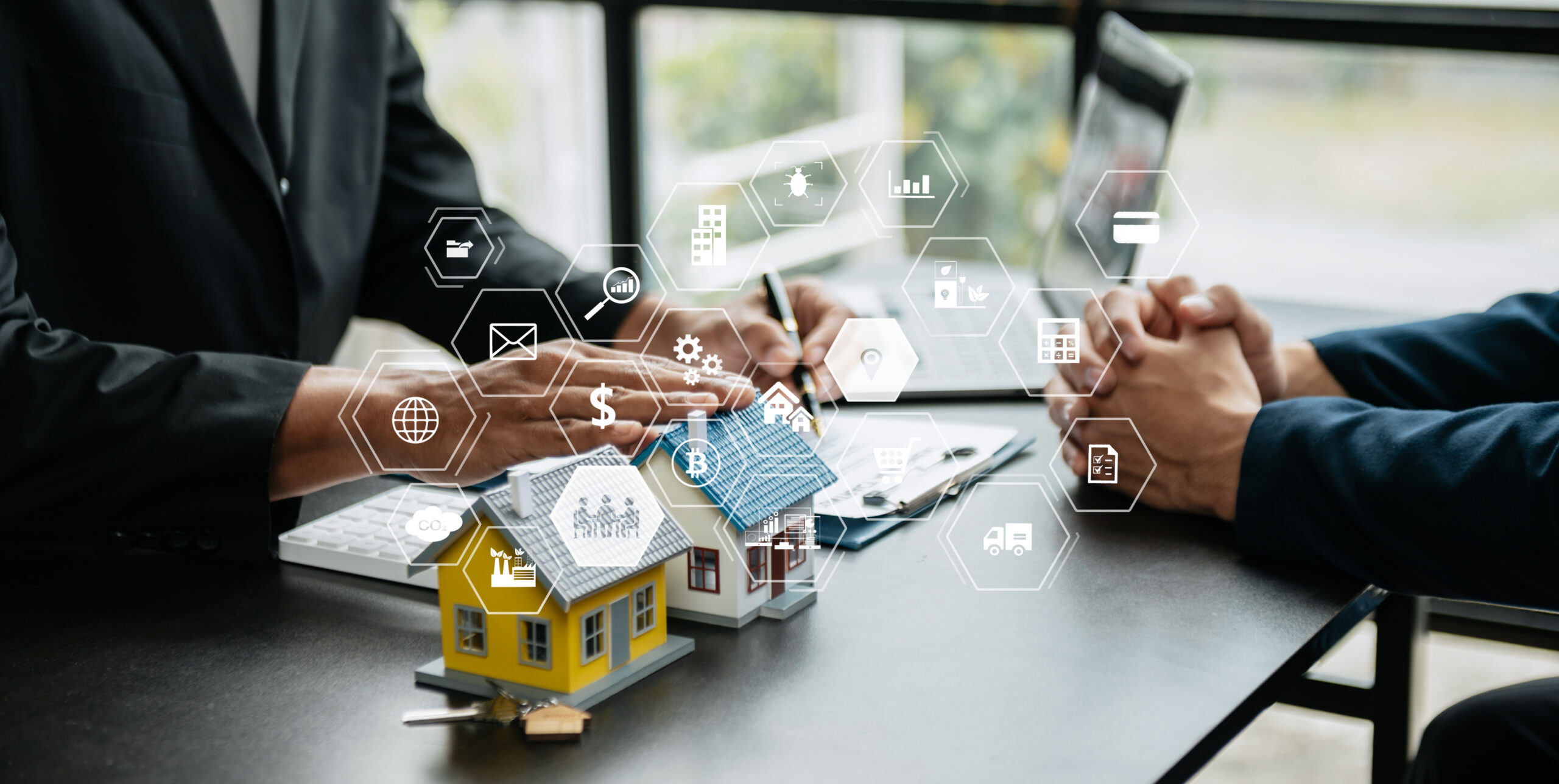Introduction: The Evolution of Property Management and the Role of Digital Platforms
Property management has traditionally been a manual, time-intensive process. Landlords and property managers have relied heavily on paper-based systems to handle everything from rent collection to maintenance requests, often requiring frequent in-person interactions with tenants. This approach, while functional, often leads to inefficiencies, delayed responses, and errors in paperwork.
However, the rise of digital platforms has drastically transformed the property management landscape. Today, technology is enabling seamless, automated systems that handle tasks such as online rent payments, maintenance tracking, tenant communications, and document management. These platforms allow property managers to streamline their operations, reduce administrative costs, and improve overall tenant satisfaction.
Real estate platforms have become essential in modern property management, offering solutions that increase efficiency, transparency, and accessibility. By integrating tools such as automated payments, data-driven insights, and smart home technology, these platforms provide property managers with the tools they need to stay competitive in an increasingly digital world. In this blog, we’ll explore how digital platforms are reshaping property management and why embracing this technology is no longer optional but essential for success.
The Rise of PropTech in Property Management
PropTech, short for Property Technology, refers to the innovative use of technology to improve, streamline, and automate property management and real estate operations. Over the past decade, PropTech has become a game-changer in the property management industry, providing solutions that simplify complex tasks, enhance operational efficiency, and deliver better experiences for both landlords and tenants.
Traditional property management was often burdened by manual processes, such as paper-based record keeping, in-person rent collection, and maintenance requests that were difficult to track. PropTech platforms have transformed these processes through automation, allowing property managers to handle day-to-day operations more effectively. For example, automation tools enable automated rent collection, online bill payments, and reminders for tenants, reducing the risk of missed payments and late fees.
Key Features of Real Estate Platforms for Property Management
Real estate platforms have evolved to become comprehensive tools for property managers, offering a range of features that automate tasks, improve efficiency, and enhance the tenant experience. Here are some key features of these platforms that are revolutionizing property management:
1. Automated Rent Collection and Payment Processing:
One of the most important features of modern property management platforms is the ability to automate rent collection. Landlords and property managers can set up recurring payments and reminders for tenants, reducing the need for manual invoicing. Online payment options make it easier for tenants to pay rent through credit cards, bank transfers, or digital wallets. Automation ensures timely payments, reducing late fees and improving cash flow for property owners.
2. Tenant Screening and Background Checks:
To ensure quality tenants, real estate platforms offer integrated tenant screening tools. These tools provide background checks, credit reports, and eviction histories, helping landlords make informed decisions when selecting tenants. These automated processes save time and reduce the risk of renting to tenants who may cause issues.
3. Lease Management and Digital Documentation:
Managing lease agreements is streamlined with digital documentation features. Property managers can store, track, and manage all lease contracts and documents electronically. These platforms often allow tenants to sign lease agreements online, ensuring a smooth and paperless process.
4. Maintenance Tracking and Issue Resolution:
Platforms also offer tools for tracking maintenance requests. Tenants can report issues through the platform, which generates work orders for maintenance teams or contractors. Managers can monitor progress, ensuring timely resolution of issues and improving tenant satisfaction.
5. Communication Tools for Landlords, Tenants, and Property Managers:
Effective communication is essential for successful property management. Real estate platforms include messaging systems that allow landlords, tenants, and property managers to communicate directly. This reduces miscommunication and ensures that issues are addressed quickly.
These features work together to make property management more efficient, cost-effective, and less time-consuming for landlords and property managers, while also enhancing the overall tenant experience.
Benefits of Real Estate Platforms for Landlords and Property Managers
Real estate platforms provide significant benefits to landlords and property managers by streamlining operations, improving efficiency, and enhancing tenant experiences. Here are some of the key advantages:
1. Time and Cost Savings Through Automation and Digital Tools:
Real estate platforms automate routine tasks such as rent collection, payment processing, and maintenance requests. This reduces the time spent on manual administration, allowing property managers to focus on higher-value activities. Automation also minimizes human error and administrative costs, leading to a more cost-effective management process.
2. Simplification of Day-to-Day Operations:
These platforms centralize all property management functions, from lease management and tenant communications to maintenance tracking. With everything in one place, landlords and property managers can easily monitor and manage multiple properties without having to juggle different systems. This simplified approach leads to fewer operational hiccups and greater efficiency.
3. Improved Tenant Satisfaction and Retention:
When tenants have easy access to features like online rent payment, maintenance request submission, and quick communication with managers, their overall satisfaction increases. Happy tenants are more likely to renew their leases, leading to better retention rates and fewer vacancies. Positive tenant experiences also help create a strong reputation for property managers and landlords.
4. Access to Real-Time Data and Analytics for Better Decision-Making:
Many real estate platforms offer analytics that help landlords and property managers make informed decisions. Access to real-time data, such as rent trends, market conditions, and tenant feedback, allows for more strategic planning. Whether deciding on rent adjustments, investment opportunities, or operational improvements, this data-driven approach leads to better decision-making and greater profitability.
In sum, real estate platforms significantly enhance property management by automating routine tasks, providing valuable insights, and fostering better relationships with tenants. These tools ultimately help landlords and property managers save time and reduce costs while improving service quality and operational efficiency.
How Property Management Platforms Improve the Tenant Experience
Property management platforms play a crucial role in enhancing the tenant experience by offering features that promote convenience, transparency, and responsiveness. These digital tools make it easier for tenants to interact with property managers, access essential information, and resolve issues promptly. Here’s how:
1. 24/7 Access to Property Details and Payment Options:
Tenants can access essential property information such as lease terms, payment history, and important notices at any time through online platforms. The ability to view property details, such as amenities or maintenance schedules, makes tenants feel more connected to their living environment. Furthermore, tenants can make rent payments and view payment history easily, ensuring they never miss a deadline and reducing friction around financial transactions.
2. Communication Features for Fast and Transparent Interaction:
Real-time messaging and notification features allow tenants to communicate with property managers or landlords instantly. Whether it’s to clarify lease terms, report an issue, or ask a question, tenants can expect fast, transparent communication. This accessibility builds trust and keeps tenants informed, leading to a more positive relationship with property managers.
3. Online Portals for Maintenance Requests and Issue Tracking:
Tenant portals enable tenants to submit maintenance requests directly through the platform, allowing them to describe the issue, upload photos, and track the status of their requests. This eliminates the need for phone calls or in-person visits, ensuring faster resolutions. Tenants appreciate knowing that their issues are being actively addressed, which increases overall satisfaction.
4. Enhanced Tenant Satisfaction and Loyalty:
By providing streamlined communication, convenient payment options, and efficient maintenance handling, property management platforms improve the overall tenant experience. When tenants feel their needs are met promptly and efficiently, they are more likely to remain long-term, leading to higher retention rates and improved loyalty.
These features help create a seamless living experience, making tenants feel valued and cared for, which contributes to tenant retention and satisfaction.
Streamlining Operations with Digital Tools and Automation
Digital tools and automation have revolutionized property management, making everyday tasks more efficient and less prone to human error. By automating time-consuming tasks, property managers can focus on more critical aspects of their business while ensuring smooth operations. Here’s how automation is streamlining property management:
1. Automated Rent Collection and Payment Processing:
One of the most significant benefits of property management platforms is the automation of rent collection. Tenants can set up recurring payments, ensuring that rent is paid on time every month. Property managers receive automatic notifications about payments, reducing the need to manually track rents. Additionally, late fees and reminders can be automatically triggered, helping to ensure financial stability and reduce missed payments.
2. Automated Maintenance Requests and Issue Resolution:
Instead of relying on phone calls or emails to report maintenance issues, tenants can submit their requests online through digital platforms. These requests are automatically routed to the appropriate team or vendor, and the progress is tracked in real time. This not only speeds up the response time but also helps ensure that maintenance issues are not overlooked.
3. Digital Communication and Alerts:
Automation also extends to communication between tenants and property managers. Property managers can schedule and send automatic reminders about lease renewals, maintenance schedules, or upcoming inspections. Additionally, platforms enable tenants to receive instant notifications about updates regarding their requests, payments, or lease agreements, fostering transparency.
4. Reducing Human Error and Increasing Efficiency:
Manual processes, such as rent collection and tracking maintenance, can often lead to mistakes or missed deadlines. Automation significantly reduces these risks by handling routine tasks with accuracy. This efficiency not only saves time but also improves overall operational effectiveness, allowing property managers to handle larger portfolios with ease. With automated systems in place, human errors, such as entering incorrect payment information or missing maintenance follow-ups, are minimized.
Incorporating digital tools and automation ultimately helps property managers save time, reduce costs, and improve overall efficiency, enabling them to provide better service to both tenants and landlords.
Data-Driven Insights and Predictive Analytics for Property Managers
In today’s digital landscape, data-driven insights and predictive analytics are becoming essential tools for property managers. Real estate platforms leverage big data to provide valuable information that can guide decision-making and improve operational efficiency. Here’s how:
1. Tenant Behavior and Payment Trends:
Real estate platforms collect and analyze large volumes of data on tenant behavior. For property managers, this means gaining insight into patterns like payment history, late payments, and general tenant preferences. By recognizing these trends, managers can predict when a tenant might be late on rent or identify tenants at risk of leaving. This enables proactive communication and mitigation strategies, ensuring higher rent collection rates and improved tenant retention.
2. Property Performance Analysis:
Data analytics allow property managers to assess the performance of each property in their portfolio. Key metrics like occupancy rates, rental yields, and historical performance can be tracked and analyzed over time. Platforms often provide visual reports and dashboards, allowing managers to quickly identify underperforming properties or areas that need attention, such as maintenance or upgrades, which could boost value and appeal.
3. Predictive Analytics for Maintenance and Renewals:
Using predictive analytics, property managers can anticipate maintenance needs before issues arise. By analyzing historical data on past repairs, seasonal trends, and equipment lifespans, platforms can predict when appliances or systems may need maintenance or replacement. This predictive capability reduces costly emergency repairs and minimizes tenant inconvenience.
Additionally, predictive analytics help property managers stay ahead of lease renewals by assessing tenant satisfaction, market conditions, and historical lease trends. They can identify tenants likely to renew and others who might move out, allowing for smoother transitions and reducing vacancies.
In summary, data-driven insights and predictive analytics allow property managers to optimize their operations, anticipate potential issues, and make informed decisions to enhance both tenant satisfaction and property performance.
Security and Transparency in Property Management Platforms
In property management, security and transparency are critical elements that ensure the smooth operation of transactions and maintain trust between landlords, property managers, and tenants. With the growing reliance on digital platforms, ensuring these aspects is more important than ever.
1. Secure Digital Transactions and Data Protection:
Property management platforms handle sensitive data, such as tenant personal information, payment details, and lease agreements. As a result, robust security protocols are essential to protect this information from cyber threats and unauthorized access. These platforms often use encryption technologies, secure payment gateways, and multi-factor authentication to safeguard both landlords and tenants’ data. This ensures that all transactions, including rent payments and deposits, are completed safely, reducing the risk of fraud and financial loss.
2. Transparency in Tenant Relations and Payments:
Transparency is a key factor in building strong relationships between property managers and tenants. Platforms enhance transparency by providing clear, accessible records of payments, lease agreements, and communication. Tenants can easily view payment history, upcoming rent due dates, and any outstanding balances. Likewise, property managers can monitor and address payment issues proactively. The ability to track and verify all transactions ensures there are no disputes over payments, fostering trust and transparency in landlord-tenant relations.
3. Blockchain and Fraud Prevention:
Blockchain technology has emerged as a powerful tool in property management, enhancing security and preventing fraud. With blockchain, every transaction is recorded in an immutable ledger, providing a transparent and auditable trail of all property-related activities, such as lease agreements, rent payments, and maintenance requests. This makes it difficult for fraudulent activity to occur and ensures that all records are easily verifiable, protecting both landlords and tenants from potential disputes.
Incorporating blockchain and other advanced technologies into property management platforms is transforming the industry, offering better security, minimizing risks, and enhancing transparency in all aspects of property management.
Integrating Smart Home Technology and IoT for Property Management
The integration of smart home technology and the Internet of Things (IoT) into property management is a game-changer, offering enhanced efficiency, convenience, and control for property owners, managers, and tenants. These technologies not only improve the management of the property itself but also provide greater value for tenants and streamline operations.
1. IoT-Enabled Devices for Improved Property Efficiency:
IoT-enabled devices, such as smart thermostats, smart lighting, and security systems, offer significant advantages in property management. Smart thermostats can automatically adjust temperature settings based on occupancy, reducing energy consumption and lowering utility costs. Similarly, smart lighting systems allow property managers to remotely control lighting, further optimizing energy usage. Security systems, including smart cameras and door locks, enhance safety by providing real-time monitoring and allowing remote access to property managers and tenants. These devices work together to ensure the property operates efficiently while delivering added convenience for residents.
2. Remote Monitoring and Maintenance:
One of the key benefits of integrating IoT and smart home technology into property management platforms is the ability to monitor properties remotely. Property managers can track key metrics, such as energy usage, HVAC performance, and security status, from anywhere in real-time. IoT-enabled systems can also send alerts when maintenance issues arise (e.g., leaks, temperature irregularities, or appliance malfunctions), allowing managers to take immediate action and schedule repairs before small problems escalate. This not only enhances the tenant experience by providing quicker resolutions but also extends the lifespan of property systems and appliances.
3. Streamlined Operations and Cost Savings:
By incorporating smart technology, property managers can automate routine tasks, improve operational workflows, and reduce the need for manual intervention. Remote monitoring and predictive maintenance help identify and address issues proactively, leading to fewer service calls and lower repair costs. Furthermore, tenants benefit from an enhanced living experience, as these technologies often contribute to greater comfort, security, and energy savings.
Overall, the integration of smart home technology and IoT into property management platforms offers increased control, convenience, and efficiency for both property managers and tenants, leading to smoother operations and long-term cost savings.
Case Studies: Real Estate Platforms Transforming Property Management
Real estate platforms are significantly transforming property management, streamlining operations, improving landlord-tenant relations, and cutting costs. Several platforms have stood out in demonstrating the tangible benefits of these innovations.
1. redbriQ: Revolutionizing Property Management with Data and Automation
redbriQ, a tech-driven platform, offers an all-in-one solution for property managers, streamlining operations through automation and real-time data insights. The platform enables automated rent collection, maintenance tracking, and tenant communications, all integrated into a single user-friendly interface. A key feature is the predictive analytics engine, which helps property managers forecast maintenance issues and tenant needs, allowing for proactive solutions rather than reactive responses.
Real-World Impact:
For landlords, redbriQ’s seamless integration of automated systems has reduced manual tasks by 50%, leading to significant time savings. A case study from a large property management firm using redbriQ highlighted a 30% reduction in maintenance costs due to predictive analytics and automated issue resolution, while tenant satisfaction increased as they could request maintenance directly through the platform and receive quick responses.
2. Buildium: Enhancing Communication and Efficiency
Buildium is another platform that has transformed property management by focusing on communication and automation. It streamlines lease tracking, automated payments, and tenant communications. A case study from a multi-family property manager showed how Buildium increased operational efficiency by 40%, as tenants could pay rents online and submit maintenance requests through an intuitive interface. This improved tenant relations and contributed to higher retention rates.
3. Avail: Simplifying Rental Management for Independent Landlords
Avail is tailored to independent landlords and offers solutions like rent tracking, tenant screening, and digital leases. An example from a landlord using Avail showed that the platform’s intuitive design reduced time spent on administrative tasks by 60%, allowing more time for property investment and tenant engagement.
In these case studies, the integration of digital platforms into property management has shown clear benefits: increased efficiency, lower costs, and improved tenant relations. As more landlords and property managers adopt these platforms, the future of property management looks increasingly streamlined and tech-driven.
Conclusion:
The Growing Importance of Real Estate Platforms in Property Management
Real estate platforms are rapidly transforming the property management sector by introducing automation, enhancing communication, and providing data-driven insights. These platforms simplify complex tasks such as rent collection, maintenance tracking, and tenant management, improving efficiency for property managers and satisfaction for tenants. With features like predictive analytics, smart home integration, and seamless communication tools, digital platforms are providing solutions that were previously unthinkable in the traditional property management model.Adopting digital platforms is now essential for property managers and landlords to stay competitive in a market that demands faster, more transparent, and secure processes. These platforms not only reduce administrative overhead but also increase tenant retention through enhanced service and convenience. The integration of technologies such as AI, blockchain, and IoT into property management tools is setting the stage for future growth, where operational efficiency and tenant satisfaction are paramount.
As the PropTech industry continues to evolve, its influence on property management will only expand. Embracing these innovations offers property managers a clear path toward maximizing profitability, improving operational workflows, and future-proofing their business in an increasingly digital world. The shift to digital platforms is no longer a trend but a necessity for those looking to thrive in the modern property management landscape.



